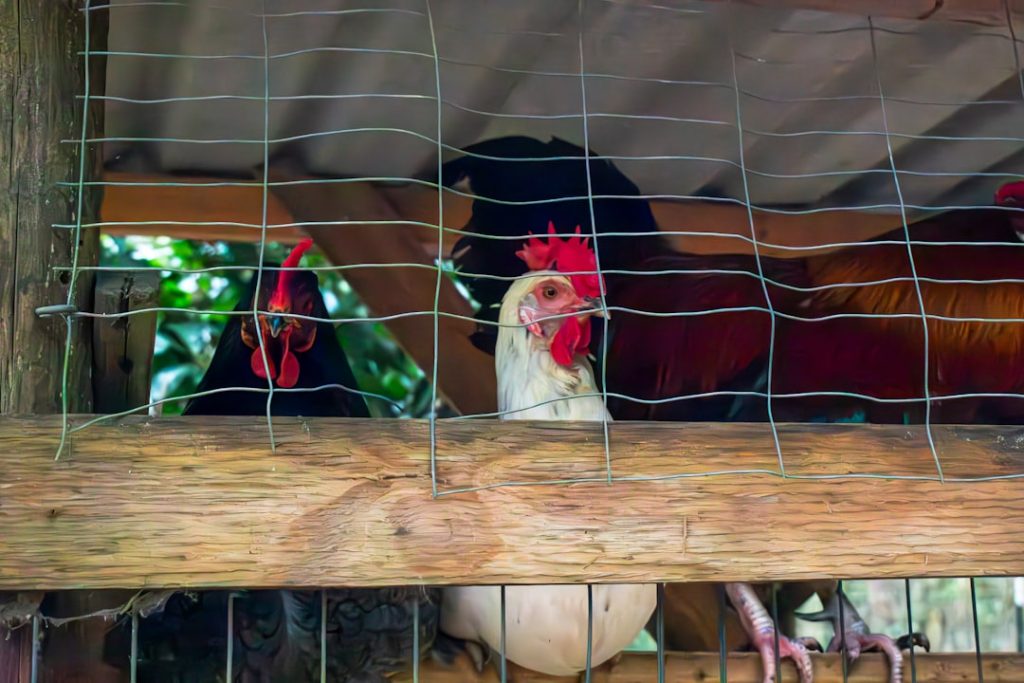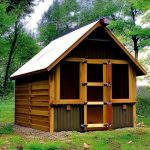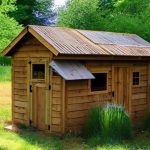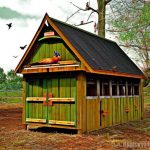Chickens are social creatures with a well-defined hierarchical structure within their group. Comprehending their behavioral patterns is essential for protecting them from predators. These birds have an innate tendency to roost at night, which exposes them to nocturnal hunters such as foxes, raccoons, and owls.
Their natural inclination to scratch and peck the ground can attract predators seeking an easy prey. Chickens are also easily frightened, potentially causing panic and disorder in the flock, increasing their vulnerability to attacks. When threatened, chickens instinctively search for hiding places.
This behavior may lead them to seek refuge in areas that are not adequately secure, making them more susceptible to predators. By recognizing these natural instincts and behaviors, poultry keepers can develop and implement more effective strategies to safeguard their flocks from potential threats. A thorough understanding of chicken behavior is crucial for ensuring their safety and well-being.
Table of Contents
- 1 Securing the Hen House
- 2 Implementing Deterrents
- 3 Utilizing Natural Predators
- 4 Providing Alternative Roosting Areas
- 5 Regularly Cleaning and Maintaining the Hen House
- 6 Seeking Professional Assistance
- 7 FAQs
- 7.1 What are some effective ways to keep chickens out of the hen house?
- 7.2 Why is it important to keep chickens out of the hen house?
- 7.3 What are some common challenges in keeping chickens out of the hen house?
- 7.4 Are there any natural deterrents to keep chickens out of the hen house?
- 7.5 How can I train my chickens to stay out of the hen house?
Key Takeaways
- Chickens are social animals and exhibit various behaviors such as pecking order, dust bathing, and roosting.
- Securing the hen house is crucial to protect chickens from predators such as foxes, raccoons, and birds of prey.
- Implementing deterrents like motion-activated lights, noise makers, and fencing can help keep predators away from the hen house.
- Utilizing natural predators like dogs, cats, or even trained raptors can help keep the area around the hen house safe from other predators.
- Providing alternative roosting areas such as elevated perches or enclosed shelters can give chickens a safe place to rest and lay eggs.
- Regularly cleaning and maintaining the hen house is essential for preventing the buildup of waste and reducing the risk of disease.
- Seeking professional assistance from a veterinarian or animal control expert can provide valuable guidance in protecting chickens from predators and maintaining their well-being.
Securing the Hen House
Building a Predator-Proof Coop
It’s important to use sturdy materials such as hardware cloth to cover windows and vents, as well as to reinforce doors and latches to prevent predators from gaining access.
Maintenance and Inspection
Additionally, it’s crucial to regularly inspect the hen house for any signs of wear and tear, and to promptly repair any damage to maintain its security.
Providing a Safe and Comfortable Environment
Another important aspect of securing the hen house is providing a safe and comfortable roosting area for the chickens. This includes providing adequate space for each bird, as well as clean bedding and nesting boxes.
By creating a secure and comfortable environment for the chickens, you can help reduce their stress levels and minimize the risk of predator attacks. Securing the hen house is a critical step in protecting chickens from potential threats and ensuring their safety and well-being.
Implementing Deterrents
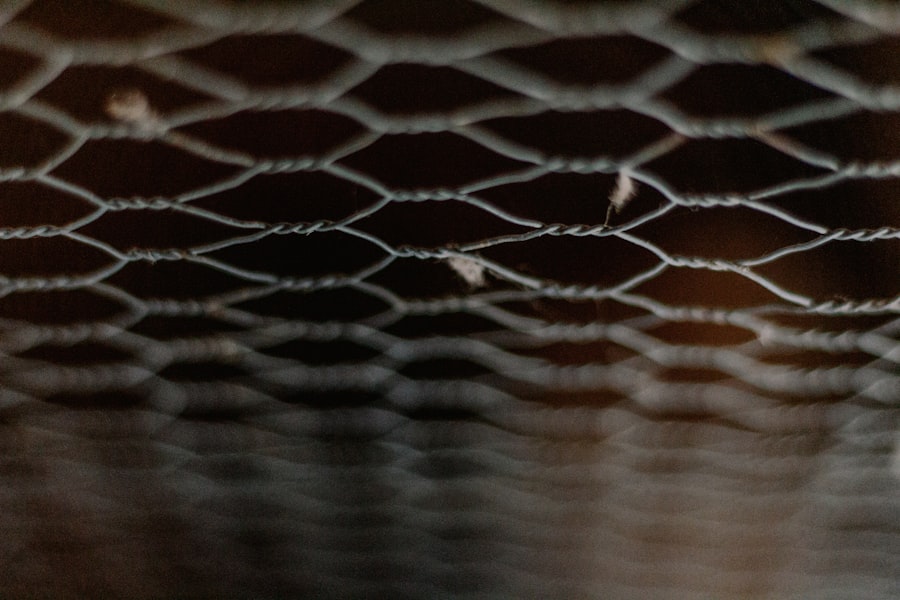
Implementing deterrents is an effective way to keep predators away from the hen house. There are various methods that can be used to deter predators, such as installing motion-activated lights or sound devices around the coop. These deterrents can startle predators and discourage them from approaching the area.
Another effective deterrent is using scent-based repellents, such as predator urine or essential oils, to create a barrier around the coop that predators will avoid. Additionally, using physical barriers such as fencing or electric netting can help prevent predators from gaining access to the hen house. These barriers can be installed around the perimeter of the coop to create a secure enclosure for the chickens.
By implementing deterrents, you can create a protective barrier around the hen house that will help keep predators at bay and reduce the risk of attacks on the flock.
Utilizing Natural Predators
Utilizing natural predators can be an effective way to keep potential threats at bay. For example, introducing guardian animals such as dogs or geese can help deter predators from approaching the hen house. These animals have a natural instinct to protect their territory and can help keep predators away from the flock.
Additionally, encouraging natural predators such as owls or hawks to frequent the area can help control rodent populations that may attract larger predators. Another way to utilize natural predators is by creating a habitat that attracts beneficial wildlife such as snakes or beneficial insects that can help control pest populations around the coop. By encouraging natural predators to inhabit the area, you can create a balanced ecosystem that helps keep potential threats in check.
Utilizing natural predators is a sustainable and effective way to protect chickens from harm while promoting a healthy environment around the hen house.
Providing Alternative Roosting Areas
Providing alternative roosting areas can help reduce the risk of predator attacks on the flock. This can include installing roosting poles or platforms in secure locations away from potential entry points for predators. By providing alternative roosting areas, you can encourage chickens to roost in safer locations that are less vulnerable to attacks.
Additionally, providing dense vegetation or shrubbery around the coop can create natural hiding spots for the chickens to seek shelter in case of danger. Another way to provide alternative roosting areas is by creating multiple levels within the coop that allow chickens to perch at different heights. This can make it more difficult for predators to reach the chickens and provide them with additional protection.
By providing alternative roosting areas, you can help reduce the risk of predator attacks on the flock and create a safer environment for the chickens to roost.
Regularly Cleaning and Maintaining the Hen House

Removing Attractants and Preventing Pests
This involves removing any food scraps or debris that may attract predators, as well as regularly cleaning out bedding and nesting boxes to prevent the buildup of pests such as mites or lice.
Inspecting and Repairing the Coop
It’s also important to regularly inspect the coop for any signs of wear and tear, and to promptly repair any damage to maintain its security.
Creating a Healthy Environment
Additionally, maintaining a clean and well-ventilated environment within the hen house can help reduce stress levels in the flock and minimize the risk of predator attacks. By regularly cleaning and maintaining the hen house, you can create a healthy and secure environment for the chickens that will help keep them safe from harm.
Seeking Professional Assistance
In some cases, seeking professional assistance may be necessary to address predator threats to the flock. This can include consulting with a local wildlife expert or predator control specialist who can provide guidance on effective deterrent methods or assist in identifying potential threats in the area. Additionally, seeking professional assistance may involve installing advanced security measures such as motion-activated cameras or alarms around the coop to monitor and deter potential predators.
Furthermore, seeking professional assistance may also involve collaborating with local farmers or poultry experts who have experience in protecting flocks from predator attacks. By seeking professional assistance, you can gain valuable insights and support in implementing effective strategies to keep chickens safe from harm. In conclusion, understanding the behavior of chickens and implementing effective strategies to protect them from predators is essential in ensuring their safety and well-being.
By securing the hen house, implementing deterrents, utilizing natural predators, providing alternative roosting areas, regularly cleaning and maintaining the coop, and seeking professional assistance when necessary, you can create a secure environment for your flock that will help keep them safe from potential threats. By taking proactive measures to protect chickens from predators, you can promote a healthy and thriving flock while minimizing the risk of harm.
If you’re looking for more information on keeping chickens, you might be interested in learning about what vegetables quails eat. Check out this article to find out how to provide a balanced diet for your quails.
FAQs
What are some effective ways to keep chickens out of the hen house?
Some effective ways to keep chickens out of the hen house include installing a secure fencing around the perimeter, using automatic coop doors that close at night, and providing a separate area for feeding and watering outside of the hen house.
Why is it important to keep chickens out of the hen house?
It is important to keep chickens out of the hen house to prevent them from causing damage to the eggs, nesting materials, and the overall cleanliness of the hen house. Additionally, keeping chickens out of the hen house can help reduce the risk of disease transmission and aggression among the flock.
What are some common challenges in keeping chickens out of the hen house?
Some common challenges in keeping chickens out of the hen house include finding and repairing any existing gaps or holes in the fencing, training the chickens to use a separate feeding and watering area, and ensuring that the coop doors are secure and functioning properly.
Are there any natural deterrents to keep chickens out of the hen house?
Yes, there are natural deterrents that can help keep chickens out of the hen house, such as using strong-smelling herbs like lavender or mint, placing predator decoys near the hen house, and using motion-activated sprinklers to startle the chickens away from the area.
How can I train my chickens to stay out of the hen house?
You can train your chickens to stay out of the hen house by consistently redirecting them to a separate feeding and watering area, using positive reinforcement such as treats when they stay out of the hen house, and providing plenty of space and enrichment outside of the hen house to keep them occupied.
Meet Walter, the feathered-friend fanatic of Florida! Nestled in the sunshine state, Walter struts through life with his feathered companions, clucking his way to happiness. With a coop that’s fancier than a five-star hotel, he’s the Don Juan of the chicken world. When he’s not teaching his hens to do the cha-cha, you’ll find him in a heated debate with his prized rooster, Sir Clucks-a-Lot. Walter’s poultry passion is no yolk; he’s the sunny-side-up guy you never knew you needed in your flock of friends!

